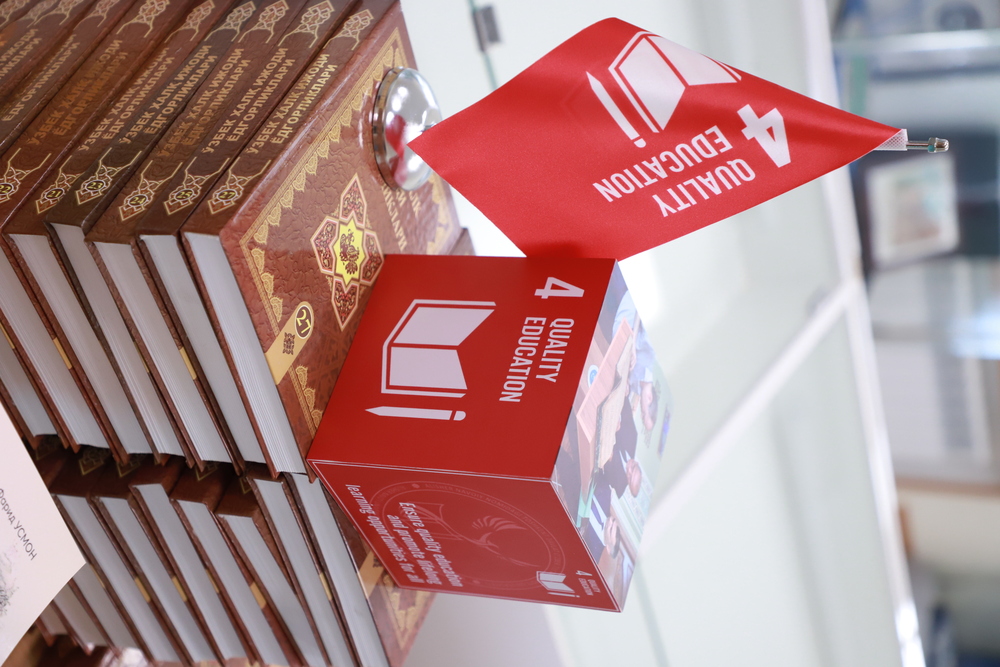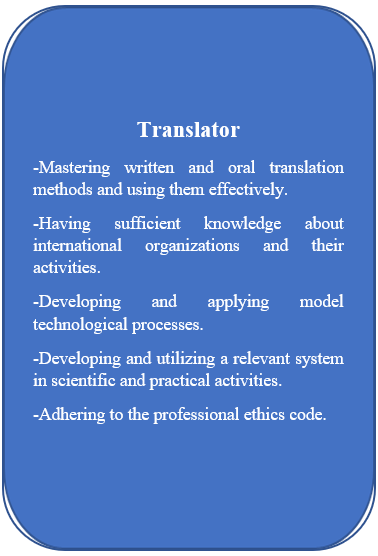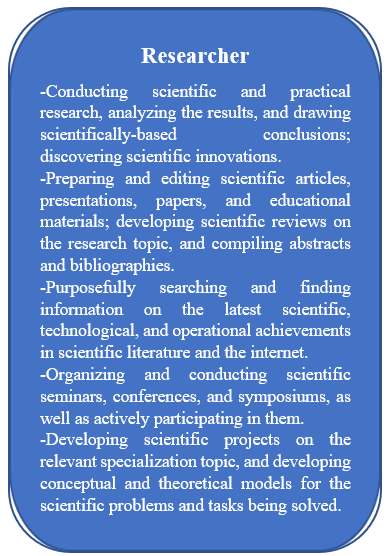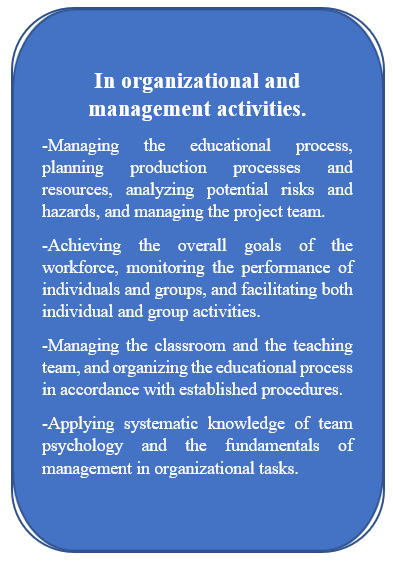Comparative Linguistics and Linguistic Translation Studies
Comparative Linguistics and Linguistic Translation Studies is a master's degree specialization that encompasses two important branches of linguistics. Students enrolled in this program not only study the structures of different languages but also deeply analyze the linguistic foundations of the translation process.
They engage in comparative analysis of various languages to identify both similarities and differences, examining phonetic, morphological, syntactic, and semantic systems. Additionally, they explore genealogical and typological trends in the development of languages and investigate grammatical and lexical relations between Uzbek and other languages.
This field also involves the study of equivalence, adequacy, and pragmatic differences in translation; principles of translating literary, scientific, and technical texts; as well as the impact of cultural differences on translation. Students in this specialization analyze the linguistic systems of two or more languages, identify and solve linguistic problems that arise during translation, conduct academic research, and investigate grammatical and semantic peculiarities among languages.
Head of Department:
PhD Mahmadiyor Asadov
Form of Education:
Two-year full-time program
Program Structure:
This program comprises a total of 28 credits.

Modular Learning
Launching in 2025
Alisher Navoi Tashkent State University of Uzbek Language and Literature (TSUULL) is set to introduce modular learning at the University starting in 2025, offering a flexible and innovative approach to education.

Master’s Program in Comparative Linguistics and Linguistic Translation Studies
The Master’s program in Comparative Linguistics and Linguistic Translation Studies is designed for students passionate about exploring languages in-depth and mastering the principles of translation. This advanced program combines theoretical linguistics with practical translation skills to prepare you for careers in international communication, academia, and translation services.
Flexible and Balanced Schedule
This two-year, full-time program is designed to fit your academic and research goals. Classes are held during the day, with flexible modules and research components tailored to your interests. The program includes around 7 core and specialized subjects, alongside academic research and thesis work. You’ll also have opportunities to participate in seminars, translation workshops, and independent study projects.
Key Areas of Study
The program focuses on both language comparison and translation practices, covering:
This course equips graduate students with the knowledge and skills necessary for conducting academic research effectively. It focuses on selecting and analyzing existing data, developing research plans and frameworks, applying them in practice, reflecting on achievements, using research methods in analysis, and understanding methodology in depth.
This course prepares students to become skilled translators and researchers capable of reading, analyzing, and translating works in the publicistic genre - such as essays, articles, and journalistic texts - from a theoretical and practical perspective. It aims to develop translators who meet contemporary standards.
This course introduces students specializing in translation to foundational theoretical and practical concepts in written translation and editing. It helps students channel their accumulated knowledge into specific types of translation and develops fundamental translation skills.
The goal of this course is to teach the spoken forms of a foreign language in an integrated manner, enhancing students’ communication skills across various contexts. It aims to improve practical language proficiency and ensure that students can confidently apply their knowledge in professional and academic settings.
This course offers a comprehensive overview of both the theory and practice of intercultural communication. Students learn about types of cultures, the relationship between language and culture, and the features of verbal and written communication. The course also explores challenges encountered when interacting with people from different cultural backgrounds and ways to overcome them.
This course explores the impact of non-linguistic factors on the translation process. It involves analyzing cultural, historical, social, and professional contexts that influence the adequacy and accuracy of translation. Students develop the skills needed to consider these factors and produce high-quality translations that preserve the source text’s meaning, style, and cultural nuances.
This course develops students’ academic research and creative writing skills. It focuses on searching for and interpreting scientific information, summarizing and synthesizing it within texts, avoiding plagiarism, properly citing sources, and analyzing the structure and content of texts across various scientific genres.
Career Opportunities
According to the 7th qualification level of the National Qualifications Framework for the specialization in Comparative Linguistics and Linguistic Translation Studies, and in line with the fields, objects, and types of professional activities of a master's graduate, the graduate must be capable of performing the following professional tasks.



Indicative annual fee
$2000*
This indicative annual fee is based on one year study load of 28 credits
If you are a local student, you can apply through our TSUULL Application system which is free of charge.
Local students are:
Scholarships
At Alisher Navo’i Tashkent State University of Uzbek Language and Literature, we are proud to offer a range of scholarships that acknowledge students with a deep commitment to the Uzbek language, literature, and culture. Our scholarships reward those who demonstrate academic excellence, active engagement within their communities, and outstanding leadership. Through donor-funded support, we also ensure that scholarships are accessible to students based on their academic achievements and financial needs. Additionally, specific scholarships are available for degrees in translation, linguistics, and Uzbek literature, fostering excellence and dedication to advancing Uzbek language and literature studies.
FIND OUT MORE
Bachelor’s vs. Master’s Degree: What’s the Difference?
Ever wondered how a Master’s degree is different from a Bachelor’s degree? Here’s what sets them apart – especially at TSUULL!
What Defines a Master’s Degree?
A Master’s degree is an advanced academic qualification that builds on the foundation of a Bachelor’s degree. It involves in-depth study, research, and critical analysis in a specific field—perfect for students aiming to specialize or pursue academic careers. At TSUULL, our Master’s programs are designed to foster innovation, independent research, and expert knowledge in fields like linguistics, translation studies, and philology.
Why Pursue a Master’s Degree at TSUULL?
A Master’s degree at TSUULL is ideal if you want to:
• Deepen your expertise in your field of study.
• Engage in advanced research and academic writing.
• Gain qualifications for teaching or professional translation careers.
• Build a strong foundation for PhD studies.
• Join a vibrant academic community and contribute to language and cultural research.
1. How long is the bachelor’s program?
The bachelor’s program is 4 years (full-time). Students complete a structured curriculum that builds on foundational courses in language and literature while allowing for specialization in later years.
2. How are assessments conducted?
Assessment in TSUULL's bachelor’s programs is diverse and may include exams, portfolios, project work, fieldwork, and practical tasks. The programs focus on authentic assessments to reflect real-world applications, with many tasks designed to develop essential skills like critical thinking, research, and time management. Additionally, teachers offer individual support through small, interactive classes, ensuring students have ample guidance throughout their studies.
3. Can I transfer between bachelor’s programs?
Yes, TSUULL allows students to transfer between bachelor’s programs. In the first year, students explore core subjects common across programs, which gives them a strong foundation and the flexibility to switch if they discover another program that better suits their goals. Credit for completed courses is generally transferable, so no time is lost.
4. What career opportunities are available after graduation?
A TSUULL bachelor’s degree opens doors to careers in education, translation, international relations, cultural institutions, and more. Graduates often find roles in translation and interpretation, publishing, media, and tourism, with their language skills and cultural knowledge highly valued by employers worldwide.
5. Are there scholarships available for foreign students?
Yes, TSUULL offers scholarships for international students based on academic performance and other achievements. Students interested in scholarships should apply early and check with the admissions office to understand the specific requirements and availability.
6. Does TSUULL offer internship or study abroad opportunities?
TSUULL has partnerships with universities and institutions abroad, allowing students to participate in exchange programs and internships. These opportunities provide valuable experience in different cultural and linguistic settings, often aligning with students’ studies and future career goals.
TSUULL has been included in the QS World University Rankings 2025, earning a spot in the 301–350 range in the Modern Languages category.
This recognition reflects the university’s strong performance in areas such as academic reputation, employer opinion, research output, and international collaboration.